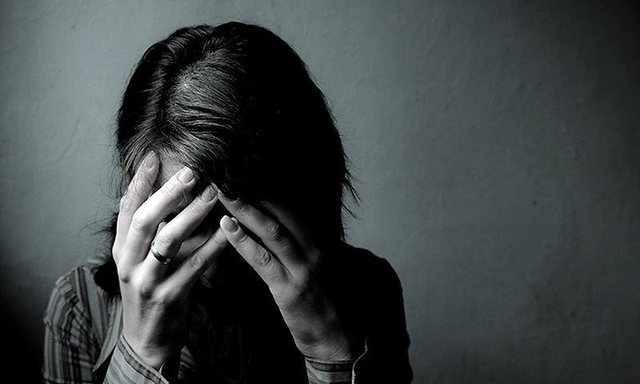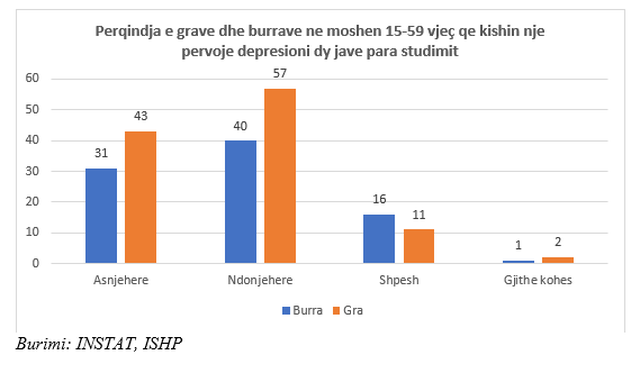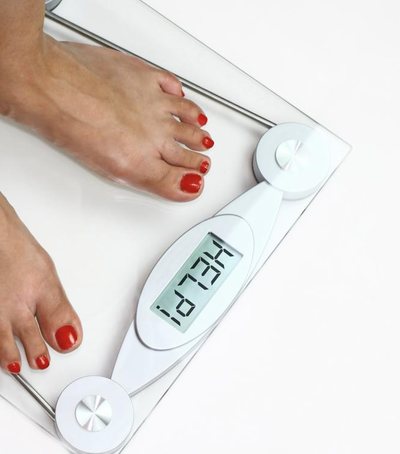
Depression is a complex mental and emotional condition, usually associated with being sad, bad mood that adversely affects mental productivity and movement. According to the World Health Organization, the percentage of the global depressed population is estimated to be 4.4%. This proportion varies according to gender and age.
The joint INSTAT and IPH survey in 2018 found that 60-70 percent of women respondents and 57 percent of men claimed to have experienced depression during the two weeks prior to the study. Of these, 13% of women and 18 males aged 15-59 were very depressed in these weeks.
In general, the prevalence of depression tends to be higher among older women. Public Health Experts claim that diagnosing depression as a mental disorder requires careful medical examination. Experts have noted that depression disorder is underreported due to the stigma associated with this condition.
Due to this limitation, the results of the 2018 survey do not represent accurate measurements of the prevalence of depression in Albania, but only a percentage estimate of people reporting that they have felt depressed at the time of the interview. To make an assessment of depression, respondents were asked: "Have you felt depressed over the last two weeks? To provide another more specific indication of depression, respondents were asked if they were diagnosed by a doctor. In this case, the reported reported prevalence of depression reflects a more accurate combination of the actual situation of the depressed population.

On the other hand, 31% of women and 43% of men said they did not experience depression two weeks before the study but did not expel the past. When asked whether they had paid a visit to a depression specialist, 2% of women and 4% of men responded positively.
The findings from the survey in relation to diagnoses show that depression is a sub-diagnostic disease in our country.
For both sexes, depression increases with age and is higher in rural areas and lower in the category of people with higher education.
About 22% of women with 8 years of education felt depressed and 9% of them were diagnosed with depression, while among those with university education, these proportions were much lower.
Economic status is a fundamental factor that leads to depression. 14% of women in the lowest wealth range have experienced depression for a long time and 4% reported being depressed all the time during the survey period.
Among women in the highest category of wealth, the prevalence of depression is lower.
An indicator of depression is also the increase in the consumption of sedative drugs in the country.
According to the confidential data provided by the General Directorate of Customs previously provided by the Monitor, imports of Loram, Xanax and Citolex have increased substantially over the last three years. For 2016, they are 6 to 17% higher according to the type of medication. In 2016, 195,137 Loram packages (2.5 milligrams) were cleared from 167,000 in 2015, with an annual growth of 18%. With double-digit rates (11%), imports of Xanax have increased and Ciltolex's 6% increase. Customs sources say that the growth rates of imports of these medicines have been high in the previous two years.
Source: Monitor







